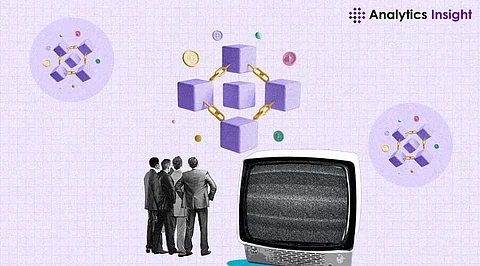Blockchain Tools: Exploring Decentralized Solutions in 2024

Discover the Latest Blockchain Tools: Exploring Decentralized Solutions in 2024
In 2024, the blockchain technology continues to evolve at a rapid pace, with decentralized solutions reshaping industries and unlocking new possibilities. As we embark on a journey to explore the latest advancements in blockchain tools, we find ourselves at the forefront of innovation and disruption. From smart contracts platforms enabling programmable agreements to decentralized finance protocols revolutionizing the financial landscape, the potential of blockchain technology to drive change is unprecedented. Moreover, with the emergence of blockchain oracles, decentralized storage solutions, and blockchain identity systems, the decentralized ecosystem is becoming more robust and versatile than ever before. Join us as we delve into the realm of blockchain tools, discovering the cutting-edge solutions that are shaping the decentralized future in 2024 and beyond.
1. Smart Contracts Platforms: Smart contracts are self-executing contracts with the terms of the agreement directly written into code. Platforms like Ethereum, Cardano, and Polkadot are leading the way in enabling the creation and deployment of smart contracts for a wide range of applications, including decentralized finance (DeFi), supply chain management, and decentralized autonomous organizations (DAOs). These platforms offer developers the flexibility to build complex decentralized applications (DApps) with programmable logic, fostering innovation and automation across various industries.
2. Decentralized Finance (DeFi) Protocols: Decentralized finance has emerged as one of the most promising use cases for blockchain technology, offering a range of financial services without the need for traditional intermediaries. DeFi protocols such as Uniswap, Aave, and Compound enable activities like lending, borrowing, trading, and yield farming in a permissionless and transparent manner. With the growing popularity of DeFi, these protocols are continuously evolving to improve scalability, interoperability, and user experience, driving greater adoption and innovation in the decentralized finance space.
3. Blockchain Oracles: Blockchain oracles serve as bridges between blockchain networks and external data sources, enabling smart contracts to interact with real-world data. Projects like Chainlink, Band Protocol, and API3 are leading the way in providing secure and reliable oracles for fetching off-chain data, such as price feeds, weather conditions, and sports scores, to trigger on-chain actions. By leveraging blockchain oracles, developers can create more robust and versatile decentralized applications that rely on timely and accurate external information.
4. Decentralized Storage Solutions: Traditional cloud storage solutions are centralized and prone to censorship, data breaches, and single points of failure. Decentralized storage platforms like Filecoin, IPFS (InterPlanetary File System), and Storj offer an alternative approach by leveraging blockchain technology to create distributed networks where users can store and retrieve data securely and privately. These platforms use cryptographic techniques to ensure data integrity and redundancy, providing a censorship-resistant and tamper-proof storage infrastructure for individuals and organizations.
5. Blockchain Identity Systems: Identity theft, fraud, and privacy breaches are significant concerns in the digital age, highlighting the need for robust identity management solutions. Blockchain-based identity systems such as Civic, uPort, and Sovrin offer decentralized and self-sovereign identity solutions that empower users to control their digital identities and personal data. By leveraging blockchain's immutable ledger and cryptographic principles, these systems enable secure and verifiable identity verification, authentication, and credential management, paving the way for a more secure and privacy-centric digital ecosystem.
In conclusion, blockchain technology continues to drive innovation and disruption across various sectors, offering decentralized solutions to longstanding challenges and transforming the way we interact, transact, and collaborate. From smart contracts platforms to decentralized finance protocols, blockchain tools are empowering individuals and organizations to build trustless, transparent, and resilient systems that foster greater inclusivity, efficiency, and security. As we embrace the opportunities presented by blockchain technology in 2024 and beyond, the potential for decentralized solutions to reshape industries and empower individuals remains limitless.
.png)

